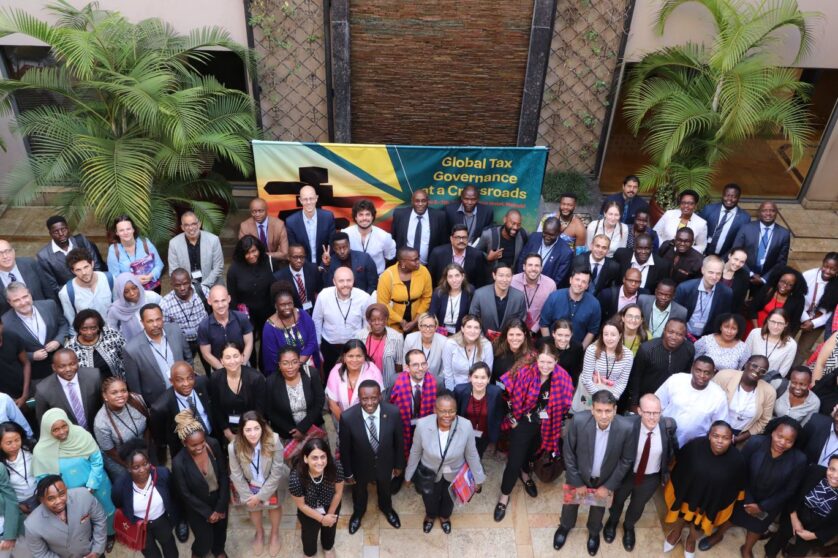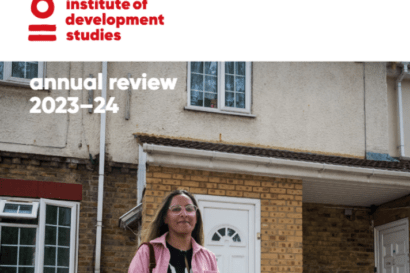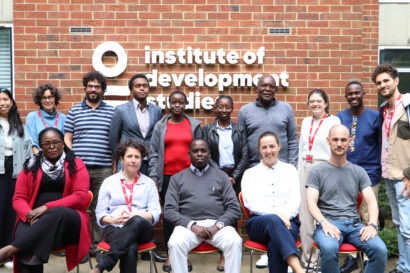This week, the UN released the advance version of the Secretary General’s report on the “Promotion of inclusive and effective international tax cooperation at the United Nations.” The report provides the basis for intergovernmental discussion at the General Assembly’s upcoming 78th session in New York. This comes as the OECD continues to push forward with its Two-Pillar Solution to Address the Tax Challenges Arising from the Digitalisation of the Economy, which 138 member countries agreed in an Outcome Statement in July.
Just prior, the ICTD convened a conference in Nairobi to discuss the future of global tax governance, which as Research Director Martin Hearson argues, has reached a critical juncture. The event brought together over 120 researchers, government officials, and members of civil society to present research, engage in pertinent policy discussions, and debate the future of multilateral tax cooperation.
The conference was hosted in partnership with the Kenya School of Revenue Administration and featured panels with insights from cutting-edge research and key actors in tax policy and administration. The event garnered media coverage in Kenya, and three key panels were livestreamed and are available for viewing below.
Panel: What have existing multilateral tax institutions delivered for lower-income countries?
This panel covered lower-income countries’ achievements in international tax negotiations, the challenges they face, lessons learned and future prospects. The panel was moderated by Miranda Stewart (University of Melbourne) and featured: Rasmi Das (Ministry of Finance, India), Marlene Parker (Ministry of Finance, Jamaica), Yariv Brauner (University of Florida), Eric Mensah (Sam Okudzeto & Associates), and George Obell (Kenya Revenue Authority).
ICTD Lecture: What has Africa learned from a decade in multilateral negotiations?
The Annual ICTD Lecture was given by Mary Baine of the African Tax Administration Forum. ICTD Research Director Giulia Mascagni moderated, while Annet Oguttu, (University of Pretoria), Nana Akua Achiaa Amoako Mensah (Ghana Revenue Authority), and Chenai Mukumba (Tax Justice Network Africa) acted as discussants.
Panel: Histories of multilateral tax cooperation
This panel featured presentations of three books/papers studying the history of multilateral cooperation, including the role of the UN and implications for lower-income countries. The speakers were: Nikki Teo (University of Sydney), Matti Ylonen (Helsinki University), and Steven Dean (Brooklyn Law School). Annet Oguttu (University of Pretoria) moderated the session, while Lyla Latif (University of Nairobi) and Muhammad Ashfaq Ahmed (Federal Board of Revenue, Pakistan) acted as discussants.
Other topics covered by the conference included taxing services and digitalisation, experiences with transfer pricing, tax treaties, minimum corporate taxes, taxing the wealthy, exchange of information, and taxing digital financial services.
Analysis and commentary
The conference was accompanied by a series of blogs:
- Have we reached a critical juncture for global tax governance? by Martin Hearson
- The Limited Impact of the BEPS Multilateral Instrument by Antonia Hohmann
- Africa Rising: A Proposal for a Continental Tax Governance Structure by Afton Titus
- Taxing cross-border services: is a global tax governance framework an illusion? by Andrea Laura Riccardi Sacchi
- A global minimum tax: is Pillar Two fair for developing countries? by Catherine Brown
- Prescriptive approaches to taxation: Reclaiming policy space by Irene Musselli
Tatiana Falcão wrote a piece for Tax Notes titled “A U.N. Tax Body Made for You and Me” based on discussions that took place during the conference. As she writes, “The fact that this debate surfaced in Africa, and that it enjoyed ample participation by African states, was indicative of the need for representation of that region. Nevertheless, the overall conclusion was that a U.N. tax body should not be viewed as a representative of developing countries only. On the contrary, it should be viewed as a representative of the views of all countries.
A board was created with the wish list of the participants of the conference. The themes (in order of popularity) were: transparency, inclusivity, empowerment of countries, voting rights, capacity building, governance structure, and funding. With a loud, resonating understanding of no country left behind.”

Follow new pieces in the ICTD’s international tax blog series here.
Event highlights, in the words of participants
In the feedback survey, respondents shared that the main things they appreciated about the conference was the selection of participants and the opportunity to forge new collaborations. In their own words, participants reported the main strength of the event as:
- “The diversity of the participants, speakers and presenters who came from all the continents was amazing!”
- “The panels had the right blend of academics and practitioners, while discussions were focused on super timely topics”
- “It was very insightful to share experiences between researchers and tax administrations”
When asked if the event would have any bearing on their future professional activities, participants shared the following:
- “I really enjoyed the opportunities it offered for networking. I appreciated the opportunity to learn from a range of disciplines and perspectives, and I enjoyed listening to the many excellent speakers.”
- “I believe having spent time with more African colleagues will bring about new opportunities for collaboration.”
- “Enhanced collaborations, networking, improved knowledge, and new research ideas.”
Martin Hearson, who leads the ICTD’s programme on international tax, said:
“I’m very grateful to KESRA for its support in organising such a successful conference, as well as to all the presenters and participants who engaged so dynamically in the discussions.”




